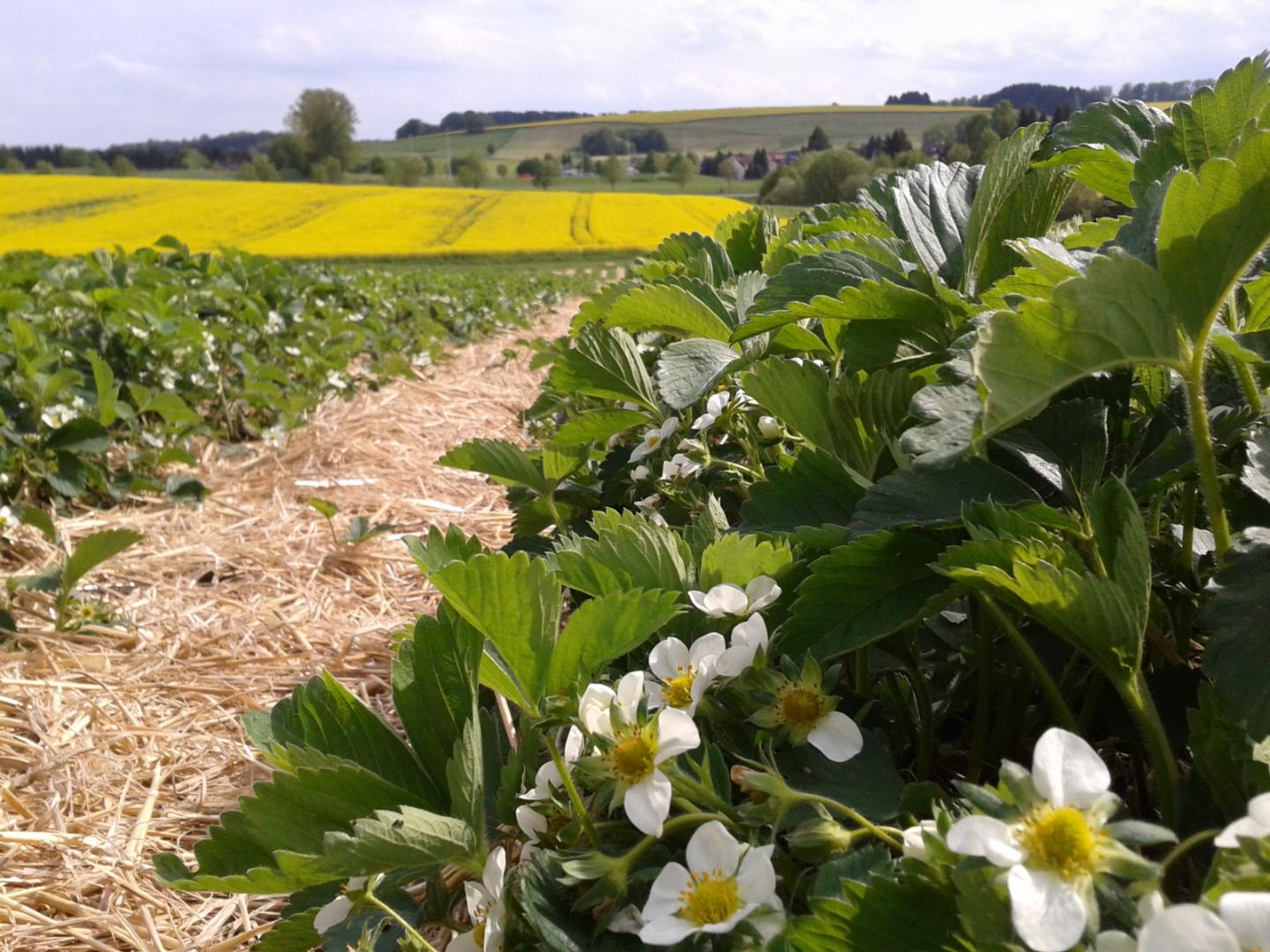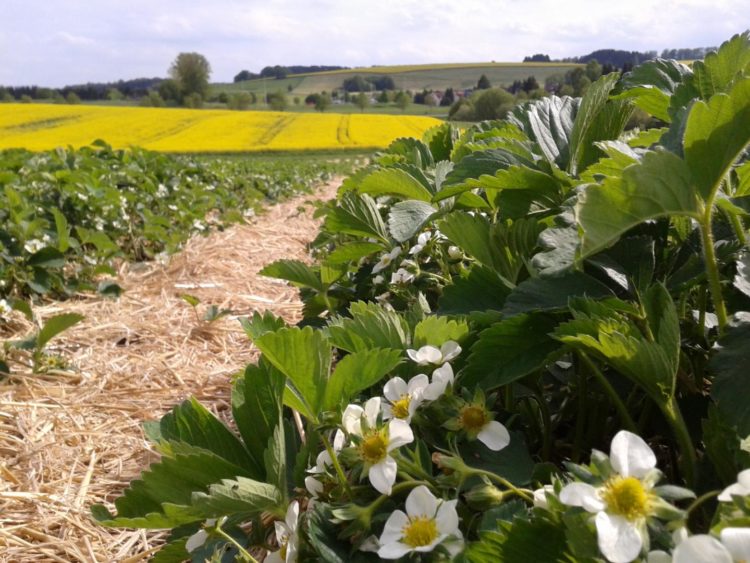Research team led by the University of Göttingen investigates foraging behavior in agricultural landscapes

Credit: Svenja Bänsch, University of Göttingen
Bees are pollinators of many wild and crop plants, but in many places their diversity and density is declining. A research team from the Universities of Göttingen, Sussex and Würzburg has now investigated the foraging behaviour of bees in agricultural landscapes. To do this, the scientists analysed the bees’ dances, which are called the “waggle dance”. They found out that honey bees prefer strawberry fields, even if they flowered directly next to the oilseed rape fields. Only when oilseed rape was in full bloom were fewer honey bees observed in the strawberry field. Wild bees, on the other hand, consistently chose the strawberry field. The results have been published in the journal Agriculture, Ecosystems & Environment.
A team from the Functional Agrobiodiversity and Agroecology groups at the University of Göttingen established small honey bee colonies next to eleven strawberry fields in the region of Göttingen and Kassel. The scientists then used video recordings and decoded the waggle dances. Honey bees dance to communicate the direction and distance of attractive food sources that they have visited. In combination with satellite maps of the landscape, the land use type that they preferred could be determined. The team also studied which plants the bees used as pollen resources and calculated the density of honey bees and wild bees in the study fields.
Their results: honey bees prefer the strawberry fields, even when oilseed rape is flowering abundantly in the area. However, honey bees from the surrounding landscapes are less common in the strawberry fields when oilseed rape is in full bloom. “In contrast, solitary wild bees, like mining bees, are constantly present in the strawberry field”, says first author Svenja Bänsch, post-doctoral researcher in the Functional Agrobiodiversity group at the University of Göttingen. “Wild bees are therefore of great importance for the pollination of crops,” emphasizes Professor Teja Tscharntke, Head of the Agroecology group.
“With this study, we were able to show that small honey bee colonies in particular can be suitable for the pollination of strawberries in the open field. However, our results also show that wild bees in the landscape should be supported by appropriate management measures”, concludes Head of Functional
###
Agrobiodiversity Professor Catrin Westphal.
Bänsch, S. et al. Foraging of honey bees in agricultural landscapes with changing patterns of flower resources. Agriculture, Ecosystems & Environment (2020). https:/
https:/
Contact:
Svenja Bänsch
University of Göttingen
Faculty of Agricultural Sciences – Functional Agrobiodiversity
Grisebachstraße 6, 37077 Göttingen, Germany
Tel: +49 (0)551 22111
Email: [email protected]
https:/
Professor Catrin Westphal
University of Göttingen
Faculty of Agricultural Sciences – Functional Agrobiodiversity
Grisebachstraße 6, 37077 Göttingen, Germany
Tel: +49 (0)551 39 22257
Email: [email protected]
http://www.
Media Contact
Melissa Sollich
[email protected]
49-055-139-26228
Original Source
https:/
Related Journal Article
http://dx.





